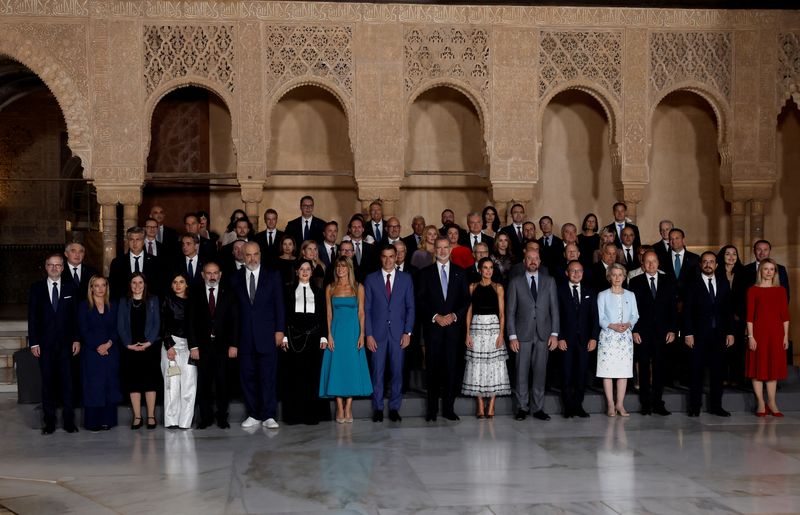By Gabriela Baczynska and Inti Landauro
GRANADA, Spain (Reuters) – Poland and Hungary blocked a symbolic European Union statement on migration on Friday, but other leaders met at a summit in Spain and said they would continue anyway to review the bloc’s rules for the handling of irregular arrivals.
So far this year, around 250,000 people have entered the EU, where 450 million people live, through regular border crossings.
Rome, Madrid and Berlin expressed concern about rising illegal immigration, a politically sensitive issue ahead of regional elections in Germany on October 8, a national vote in Poland a week later and a parliamentary vote across the continent next June year.
Polish Prime Minister Mateusz Morawiecki accused Germany and Poland’s opposition leader of working together to pass new EU laws that would impose fines on countries if they refuse to receive people arriving from the Middle East and Africa.
“Poland does not agree to someone else furnishing our house,” Morawiecki said.
His ally and Hungarian anti-immigration leader Victor Orban also accused the EU of forcing a new migration pact.
Of the EU’s 27 member states, 22 agreed this week on how to deal with irregular immigration in times of exceptionally high arrivals, taking a step towards reforming the EU’s inefficient asylum and migration rules block.
The European Parliament must continue negotiating the deal, something the bloc’s chief executive said on Friday she was confident would reach a final agreement.
“We can talk about it a lot, but it’s coming now,” European Commission President Ursula von der Leyen said.
“Migration has always been there, and it will always be there. The question is how we deal with it as a team in Europe… We cannot accept what human traffickers do and we cannot let them decide who has access to the EU.”
DIVISION
Although Poland and Hungary cannot block the EU’s new migration pact and their resistance on Friday was largely symbolic, their harsh criticism raises questions about how effectively the union can implement a deal.
“Election after election, migration is at the top of our citizens’ concerns,” said Roberta Metsola, President of the European Parliament, who also attended the summit. “There is no silver bullet, but let us not destroy this pact before we adopt it.”
The EU has tightened its external borders and asylum laws since more than a million people – most of them fleeing the war in Syria – arrived via the Mediterranean in 2015.
That took the bloc by surprise, overwhelming security and reception capacity in southern member states, as well as in wealthy destination countries such as Germany, and sparking bitter rows among the 27 over how to distribute the new arrivals.
Years of disagreement over migration have damaged the bloc’s unity and Friday’s feud suggests this is far from over: ‘deal, or no deal’.

Last month, Germany introduced border controls with its EU countries, saying they are needed to crack down on people smugglers as irregular arrivals rise again.
On Friday, German Chancellor Olaf Scholz said that countries that hold the most fervent anti-immigration lines cannot simultaneously allow refugees and migrants to simply cross into Germany without first registering them and properly housing them on their territory.


